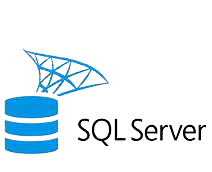Description
Duration: 3 days
This three-day instructor-led course is aimed at people looking to move into a database professional role or whose job role is expanding to encompass database elements. The course describes fundamental database concepts including database types, database languages, and database designs.
The primary audience for this course is people who are moving into a database role, or whose role has expanded to include database technologies.
After completing this course, students will be able to:
- Describe key database concepts in the context of SQL Server 2016
- Describe database languages used in SQL Server 2016
- Describe data modeling techniques
- Describe normalization and denormalization techniques
- Describe relationship types and effects in database design
- Describe the effects of database design on performance
- Describe commonly used database object
Prerequisites
This is a foundation level course and therefore only requires general computer literacy.
What’s included?
- Authorized Courseware
- Intensive Hands on Skills Development with an Experienced Subject Matter Expert
- Hands-on practice on real Servers and extended lab support 1.800.482.3172
- Examination Vouchers & Onsite Certification Testing- (excluding Adobe and PMP Boot Camps)
- Academy Code of Honor: Test Pass Guarantee
- Optional: Package for Hotel Accommodations, Lunch and Transportation
With several convenient training delivery methods offered, The Academy makes getting the training you need easy. Whether you prefer to learn in a classroom or an online live learning virtual environment, training videos hosted online, and private group classes hosted at your site. We offer expert instruction to individuals, government agencies, non-profits, and corporations. Our live classes, on-sites, and online training videos all feature certified instructors who teach a detailed curriculum and share their expertise and insights with trainees. No matter how you prefer to receive the training, you can count on The Academy for an engaging and effective learning experience.
Methods
- Instructor Led (the best training format we offer)
- Live Online Classroom – Online Instructor Led
- Self-Paced Video
Speak to an Admissions Representative for complete details
| Start | Finish | Public Price | Public Enroll | Private Price | Private Enroll |
|---|---|---|---|---|---|
| 5/12/2025 | 5/14/2025 | ||||
| 6/2/2025 | 6/4/2025 | ||||
| 6/23/2025 | 6/25/2025 | ||||
| 7/14/2025 | 7/16/2025 | ||||
| 8/4/2025 | 8/6/2025 | ||||
| 8/25/2025 | 8/27/2025 | ||||
| 9/15/2025 | 9/17/2025 | ||||
| 10/6/2025 | 10/8/2025 | ||||
| 10/27/2025 | 10/29/2025 | ||||
| 11/17/2025 | 11/19/2025 | ||||
| 12/8/2025 | 12/10/2025 | ||||
| 12/29/2025 | 12/31/2025 | ||||
| 1/19/2026 | 1/21/2026 |
Curriculum
Module 1: Introduction to databases
This module introduces key database concepts in the context of SQL Server 2016.
Lessons
Introduction to relational databases
Other types of database
Data analysis
Database languages
Lab: Querying SQ Server
After completing this module, you will be able to:
Describe what a database is
Understand basic relational aspects
Describe database languages used in SQL Server 2016
Describe data analytics
Module 2: Data Modelling
This module describes data modeling techniques.
Lessons
Data modeling
ANSI/SPARC database model
Entity-relationship modeling
Lab: Entity-relationship modeling
After completing this module you will be able to:
Understand the common data modeling techniques
Describe the ANSI/SPARC database model.
Describe entity relationship modeling
Module 3: Normalization
This module describes normalization and denormalization techniques.
Lessons
Why normalize data?
Normalization terms
Levels of normalization
Denormalization
Lab: Normalizing raw data
After completing this module, you will be able to:
Describe normalization benefits and notation
Describe important normalization terms
Describe the normalization
Describe the role of denormalization
Module 4: Relationships
This module describes relationship types and effects in database design.
Lessons
Schema mapping
Referential integrity
Lab: Designing relationships
After completing this module, you will be able to:
Describe relationship types
Describe the use, types, and effects of referential integrity
Module 5: Performance
This module introduces the effects of database design on performance.
Lessons
Indexing
Query performance
Concurrency
Lab: Query performance
After completing this module, you will be able to:
Discuss the performance effects of indexing
Describe the performance effects of join and search types
Describe the performance effects of concurrency
Module 6: Database Objects
This module introduces commonly used database objects.
Lessons
Tables
Views
Stored procedures
Other database objects
Lab: Using SQL Server in a hybrid cloud
After completing this module, you will be able to:
Describe the use of tables in SQL Server 2016
Describe the use of views in SQL Server 2016
Describe the use of stored procedures in SQL Server 2016
Describe other database objects commonly used in SQL Server 2016


